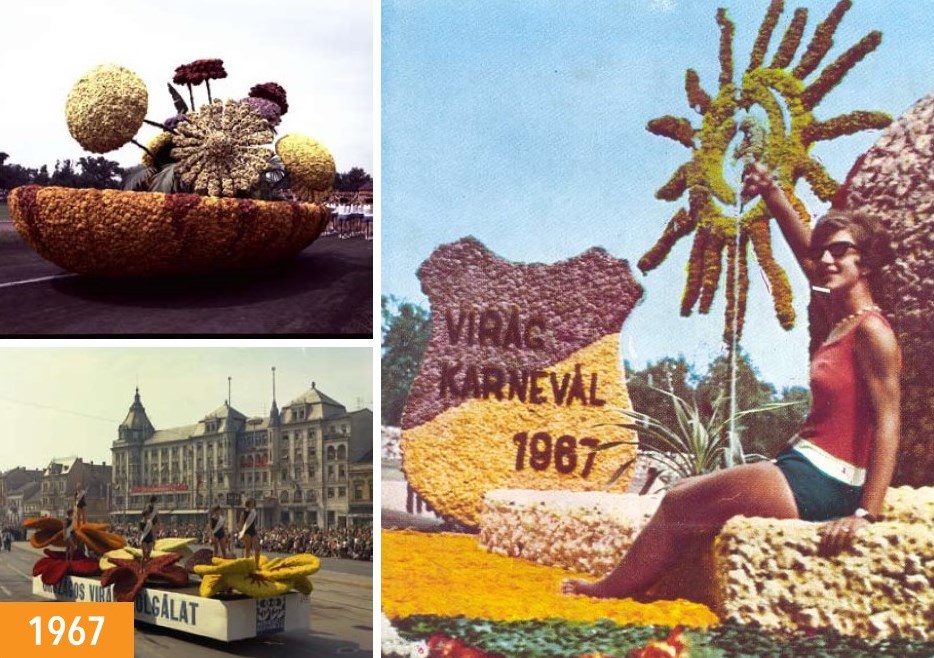Thessaloniki gets ready for its metro launch in November
The underground rapid transit lines have been under construction for almost two decades due to various project delays
 TheMayor.EU logo
TheMayor.EU logo Local authorities report that the carnival had around 2,000 participating dancers
Last week, Hungary’s second-largest city – Debrecen, hosted its annual Flower Carnival (Virágkarnevál), one of the most significant celebrations in the local area and the city’s way of marking the country’s national holiday.
The festival was on a two-year hiatus during the pandemic like many European annual celebrations, but this year it hosted nearly 2,000 dancers and 12 movable flower installations. Additionally, the Flower Carnival welcomed groups from all over the world, including Italy, Spain, Belgium, Germany, Turkey, Columbia and even South Korea.
The festival started on 15 August and ended last Sunday. During its week-long programme, the city hosted exhibitions, street food and craft beer showings, dance forums and light shows.
Despite its long history and popularity, the Flower Festival has been able to maintain its local character and many of the participants are small producers and vendors from the area.
For all of Hungary, 20 August is a special day, making the anniversary of King Stephan I being named a saint. But in Debrecen, it has an extra flair, as it is the day of the Flower Carnival. According to official sources, the festival has been held almost every year since 1966 and this year is its 53rd edition.
However, some city archivists believe that it actually has even deeper roots, as there was a flower celebration organised by the local Civic Cyclists’ Association in the year 1900. The cyclists wanted to celebrate the creation of a new track with flower installations hauled on their bikes.
The next time flowers showed up as a celebration in the city was in 1905. That year, Debrecen saw its first-ever ambulance, purchased for public health reasons. Before that, in cases of emergency, the city’s 80,000 inhabitants had to rely on word of mouth and organize their own journey to reach a doctor.
The Flower Carnival was brought back as an annual event in 1966 and has evolved since then to offer a whole host of activities, amid the cavalcade of spectacular floral arrangements. At the same time, however, it has also kept its local character and focus on preserving nature.
 Images from the flower carnival in 1967, Source: Virágkarnevál
Images from the flower carnival in 1967, Source: Virágkarnevál
Are you between 15 and 29 years old? Take a moment to complete a short survey on youth empowerment on this link.

The underground rapid transit lines have been under construction for almost two decades due to various project delays

Now you can get your wine in Talence by paying directly in Bitcoin

That’s because the state has to spend money on updating the railway infrastructure rather than subsidizing the cost of the popular pass

Rethinking renewable energy sources for the urban landscape

The examples, compiled by Beyond Fossil Fuels, can inform and inspire communities and entrepreneurs that still feel trepidation at the prospect of energy transition

Now you can get your wine in Talence by paying directly in Bitcoin

The 10th European Conference on Sustainable Cities and Towns (ESCT) sets the stage for stronger cooperation between the EU, national and local level to fast track Europe's transition to climate neutrality.

At least, that’s the promise made by the mayor of Paris, Anne Hidalgo

The underground rapid transit lines have been under construction for almost two decades due to various project delays

At least, that’s the promise made by the mayor of Paris, Anne Hidalgo

Hostal de Pinós is located in the geographical centre of the autonomous region

Despite its church-y name, the district has long been known as the hangout spot for the artsy crowds

Urban dwellers across the EU are having a say in making their surroundings friendlier to people and the environment.

Forests in the EU can help green the European construction industry and bolster a continent-wide push for architectural improvements.

Apply by 10 November and do your part for the transformation of European public spaces

An interview with the Mayor of a Polish city that seeks to reinvent itself

An interview with the newly elected ICLEI President and Mayor of Malmö

A conversation with the Mayor of Lisbon about the spirit and dimensions of innovation present in the Portuguese capital














